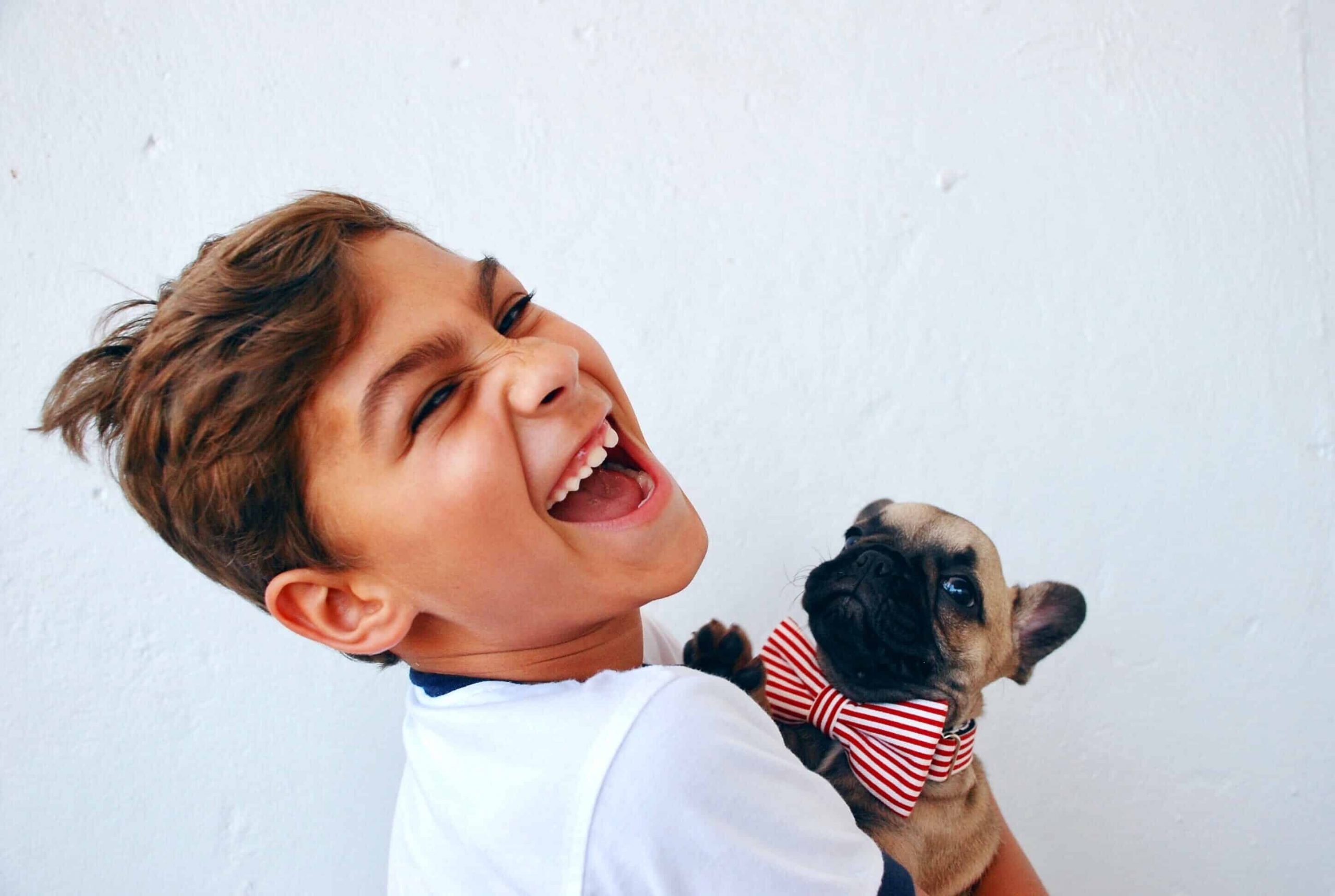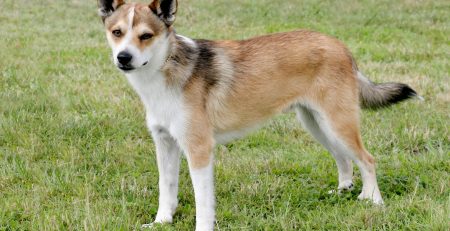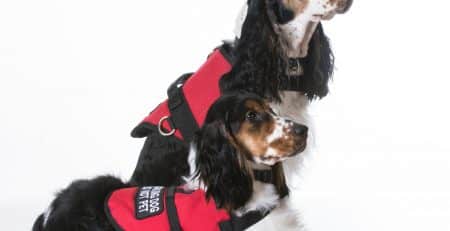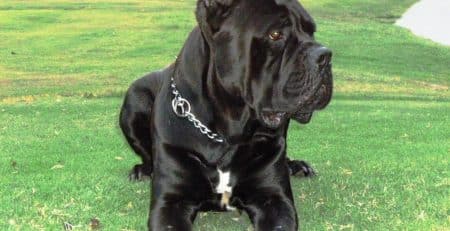Best dog for a teenager
There are so many excellent reasons to get a dog for your teenager. Perhaps he or she’s been asking for ages. Maybe you’re worried about your teenager spending too much time indoors, glued to their computer screen. Perhaps you want to teach them about responsibility, or to encourage their love of exercise and the outdoors. Your teenager may need a companion, or needs a pet to help them feel less anxious.
Whatever the reason, if you’ve discussed the matter as a family and considered whether a dog is right for you, you’re probably wondering what breed is right for your teenager. They may be crazy about wolf-hybrids or Tibetan Mastiffs, but these may not be the best choices (especially if you live in an apartment!). We at NewDoggy have put together a list of some ideal dog characteristics and breeds for a teenager.
The Benefits of a Dog
Research has shown that pets can help people feel more relaxed and less stressed. Many teenagers suffer from mental health problems, and even those that don’t may feel stressed. Being a teenager is tough, and even the happiest, most well-adjusted teens still struggle with social life, academic pressures, and finding their place in the world as they grow up.
While counselling and proper mental healthcare are very important, a canine companion can go a long way towards helping a struggling teen. A pet can help them learn to process their emotions, have stronger social relationships, increase their empathy, and feel more confident. A pet is a non-judgemental companion to talk to, cry to, play with, and cuddle.
Canine Characteristics
When looking for a dog for your teenager, there are a few characteristics that are worth looking for.
- Even-tempered and Friendly: Your teen’s dog should obviously get on with them, but should also be friendly to the rest of the family and any of your teen’s friends who come to visit (or at the very least, polite to them). Do not pick breeds with a reputation for being suspicious or aggressive.
- Age: Do you and your teenager have enough time to look after a puppy, or would an older dog be more suitable?
- Health: A healthy dog will save you heart-ache and money in the long run. That said, if you have the time and patience, don’t dismiss all dogs with health problems. Some health issues, such as a missing leg, hardly affect a dog’s daily life. Other issues, such as diabetes, can be managed with proper daily care.
- Size: Your new dog’s size should be appropriate for the space that you live in. A smaller dog will be more comfortable in a little apartment than a big one. If your home is larger, you’ll have more options for different sized dog breeds.
- Energy level: A very energetic dog will obviously need a lot of exercise. Since your teen spends most of the day at school, it may be hard to give the dog enough exercise unless you and your teen are especially devoted. If less time is available, pick a dog that needs less exercise.
- Manners and obedience: Your teenager may not have the time or experience to train a dog that needs more attention or specialised training. Some dogs are stubborn or need more time to learn good manners, and if your teenager simply hasn’t got the time to work with them, it’s unfair on the both of them to get such a dog.
Teenage Dream Dog Breeds
We’ve put together a list of some ideal breeds for a teenager, based on the above characteristics. Keep in mind that these are just suggestions, and that it’s more important to choose an individual dog than a breed. Any dog could be the right one for your teenager, so treat this list as a stepping stone on the path to choosing the perfect pup. Don’t rule out mixed breeds or dogs from rescue shelters either, as these can also make amazing companions.
Pug
Pugs weight between 6.35 and 8.16 kg, so smaller Pugs may be light enough to travel in the cabin. They are flat faced, which makes them sensitive to changes in temperature and air quality. If your vet gives the go ahead, you can fly with your Pug, but keep a close eye on him/her during the flight.
Labrador Retriever
The Labrador Retriever has proven itself time again as both a great sporting dog and a wonderful pet. Their short fur means they are very easy to groom, but you’ll need to give your Labrador plenty of exercise. This makes the Labrador a good choice for energetic families or just someone who enjoys daily walks. This breed is very intelligent and keen to please, so provided you get a healthy puppy from a reputable breeder, you should be just fine.
Golden Retriever
Often considered the quintessential family dog, the Golden Retriever is a wonderfully friendly and sweet-natured breed. Due to its size, the Golden Retriever is best suited for a larger home, and also needs regular exercise.
Collie
The Collie is an extremely clever and lively breed, and you should only choose one if you and your teen are prepared to give it the exercise and training that it deserves. The good news it hat if you put in the time and effort, you will find that you have made a wonderful addition to the family. Collies are playful and friendly, and their exercise requirements mean that your teenager will spend plenty of time outside in the fresh air. If your teenager loves sports or enjoys being outdoors, the Collie could be their perfect pet.
German Shepherd
The intelligence, athleticism and beauty of this breeds has always made them very popular; the same goes for German Shepherd mixes. This breed is an excellent choice for a teen that is interested in dog training and is also willing to give this dog the mental and physical stimulation that it needs.
Jack Russell Terrier
The Jack Russell is small but tough. These little dogs are intelligent, tenacious, and friendly. This breed would make an excellent companion for a teen who is interested in dog-training, as Jack Russells are great at learning all sorts of tricks.
Beagle
The Beagle is a very popular breed, and it’s easy to see why. They are friendly, clever, playful, and loyal. Beagles need exercise, which could be a good incentive for your teen to go for a daily stroll and get some fresh air!
Bichon Frise
The Bichon Frise is an amazing combination of charm, intelligence, and affection. These fuzzy little white dogs get on with just about everyone and are much beloved pets for many families. The only downside is that their beautiful curly coats do need a lot of care and grooming to stay in good condition.
Greyhound
These large dogs are surprisingly calm and even lazy at times. Greyhounds do need to go for a run daily, but once they’ve had their big run for the day, they are happy to laze around. Greyhounds tend to be sweet and calm, and their short coats are very easy to groom.
Poodle
Poodles comes in a variety of sizes: toy, miniature, medium, and standards; so n matter what size your home is, there’s room for a Poodle! Poodles, and most poodle-mixes, are excellent dogs for beginners. The Poodle is fairly easy to care for, though you’ll need to take care of their curly coat. Poodles of all sizes are clever and capable of learning a wide variety of tricks.
Cavalier King Charles Spaniel
This silky dog is sporty yet cuddly. The Cavalier loves comfort, whether that involves sitting on your lap or curling up on a soft cushion. The Cavalier is also delighted to be outdoors. This breed needs a good walk every day, and ideally a fenced area such as a garden to run around and play in. The Cavalier King Charles thrives on companionship, and shouldn’t be left alone for a long time.
Corgi
Small and stocky, the Corgi is surprisingly active for its size. A Corgi might be a good choice if for someone living in a smaller house or apartment, but who still loves to exercise. Your Corgi will happily join you, whether it’s on a walk, run, or cycle. Daily exercise will also prevent your Corgi from getting fat, as these dogs are prone to weight gain.


































